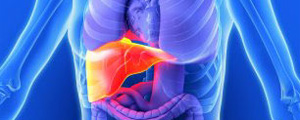 Fatty liver disease, formerly known as Non-alcoholic Fatty Liver Disease (NAFLD), has recently undergone a significant shift in nomenclature, now being referred to as Metabolic Associated Fatty Liver Disease (MAFLD). This rebranding reflects a deeper understanding of the condition, highlighting its close association with metabolic dysfunction. MAFLD encompasses a spectrum of liver conditions linked to metabolic disorders such as obesity, insulin resistance, and dyslipidemia, emphasizing the interconnectedness of liver health and metabolic health.
Fatty liver disease, formerly known as Non-alcoholic Fatty Liver Disease (NAFLD), has recently undergone a significant shift in nomenclature, now being referred to as Metabolic Associated Fatty Liver Disease (MAFLD). This rebranding reflects a deeper understanding of the condition, highlighting its close association with metabolic dysfunction. MAFLD encompasses a spectrum of liver conditions linked to metabolic disorders such as obesity, insulin resistance, and dyslipidemia, emphasizing the interconnectedness of liver health and metabolic health.
Prevalence of Fatty Liver Disease
The prevalence of fatty liver disease is staggering, affecting approximately 25% of the adult population worldwide. This alarming statistic underscores the urgent need for greater awareness, prevention, and treatment strategies to address this silent epidemic. Despite its widespread prevalence, fatty liver disease often goes undiagnosed and untreated until it progresses to more severe stages, highlighting the importance of early detection and intervention.
Risk Factors of Fatty Liver Disease
Several risk factors contribute to the development and progression of fatty liver disease. These include obesity, insulin resistance, Type 2 Diabetes, high cholesterol or triglycerides (hyperlipidemia), and mitochondrial dysfunction. Lifestyle factors such as poor diet, sedentary behavior, and excessive alcohol consumption also play a significant role in increasing the risk of fatty liver disease. Additionally, certain genetic predispositions and medical conditions may predispose individuals to this metabolic disorder.
Causes of Fatty Liver Disease
The underlying causes of fatty liver disease are multifactorial and complex. Obesity, insulin resistance, and Type 2 Diabetes contribute to the accumulation of fat in the liver, leading to inflammation and liver damage over time. Dyslipidemia, characterized by elevated levels of cholesterol or triglycerides, further exacerbates liver dysfunction. Mitochondrial dysfunction, gastrointestinal dysfunction, and intestinal permeability also play key roles in the pathogenesis of fatty liver disease, highlighting the importance of addressing metabolic and digestive health in its treatment and prevention.
In addressing MAFLD, a holistic approach that addresses the underlying metabolic imbalances and lifestyle factors is essential for effective treatment and prevention. Dietary and lifestyle interventions, including a balanced diet rich in whole foods, regular physical activity, and stress management techniques, are fundamental components of a comprehensive treatment plan. Nutraceutical therapies, such as specific vitamins, minerals, and antioxidants, may also support liver health and metabolic function.
Improving metabolic health through targeted interventions aimed at reducing insulin resistance, optimizing lipid profiles, and restoring gut and mitochondrial function is crucial in managing fatty liver disease. By addressing the root causes and contributing factors, such as elevated triglycerides, insulin resistance, and gut dysbiosis, individuals can effectively reverse liver damage and improve overall metabolic function.
Minnetonka Holistic Doctor
Metabolically driven disorders such as fatty liver disease require a comprehensive and individualized approach to treatment. Dr. Nate Champion at Champion Naturopathic Health located in Minnetonka, specializes in addressing the underlying causes discussed above in the treatment of fatty liver and other associated cardiometabolic conditions. With expertise in functional medicine and a focus on holistic wellness, Dr. Champion provides personalized care to help patients achieve optimal liver health and overall well-being.

